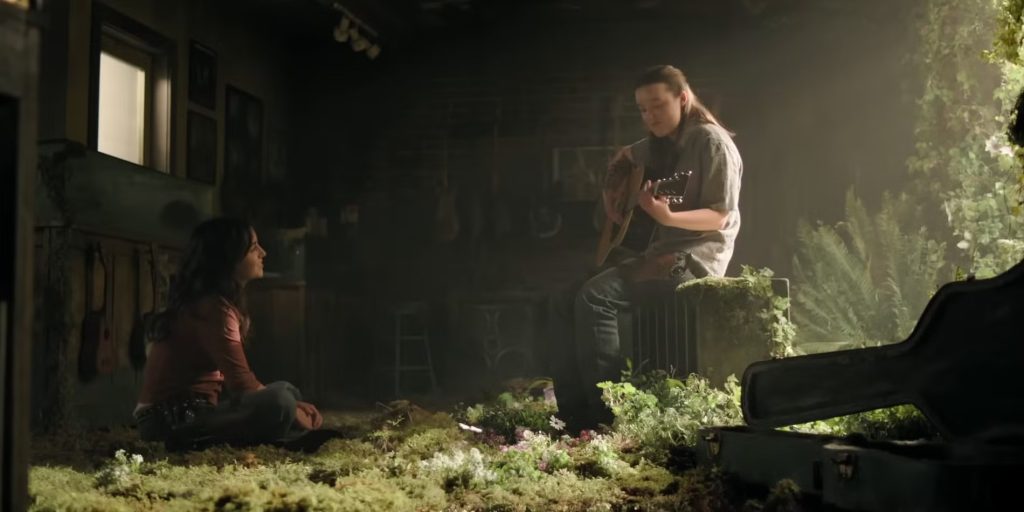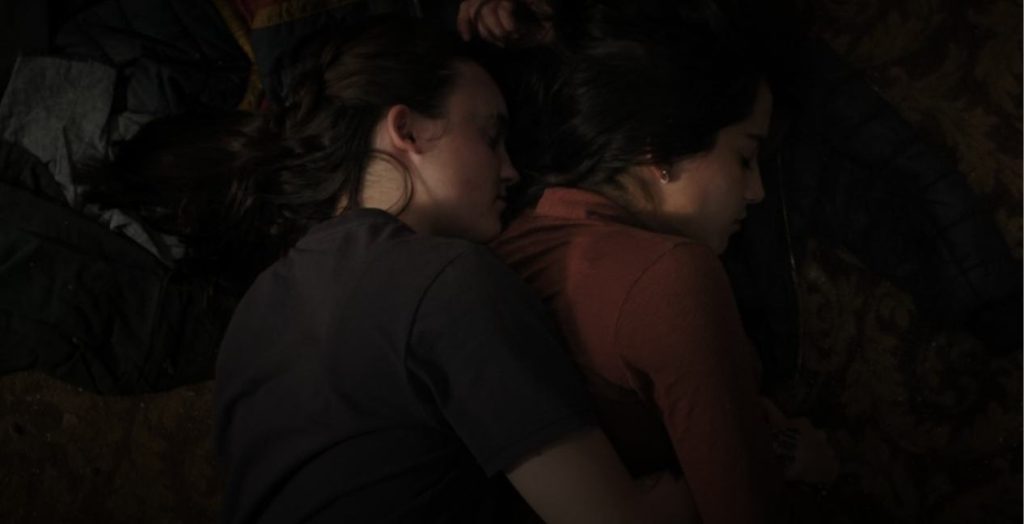Season 2 of The Last of Us has already delivered emotional punches, none more resonant than those in Episode 4. Directed by Loki alum Kate Herron, the episode marks a significant turning point for the HBO series, not only in narrative but in the emotional and relational stakes for its central characters.
Fans are still processing the early loss of Joel (Pedro Pascal), but the story has quickly pivoted to focus on Ellie (Bella Ramsey), Dina (Isabela Merced), and newcomer Isaac Dixon (Jeffrey Wright). This episode forces each character to confront choices that could alter the course of their lives—and in the case of Dina, a surprise pregnancy reveals new emotional territory.
Herron spoke with Out about crafting this deeply personal chapter, which explores queer love, identity, and found family in the midst of a violent and uncertain world. Her direction brings a sense of intimacy and emotional nuance rarely seen in apocalyptic storytelling.
A Story of Survival and Identity
Episode 4 opens with a young soldier forced by Isaac to choose a side. Herron says that moment establishes the tone for the entire episode.
“For me, it was all about grounding the story emotionally,” Herron said. “Whether it’s the military pressure, Ellie and Dina’s romance, or the trauma these characters carry, it was crucial to track the emotional arcs and make the audience feel like they’re right there with them.”
The character of Isaac, introduced for the first time this season, adds thematic weight to the episode. While Herron deferred to series co-creator Craig Mazin on Isaac’s broader role, she emphasized that showing human threats—beyond the infected—was essential.
“In Seattle, people are as dangerous, if not more so, than the infected,” she said. “That sets the stage for what’s coming.”
Queer Love in a Genre Landscape
Known for bringing queer representation into mainstream genre television, Herron believes that science fiction and horror offer unique avenues to explore universal themes.
“The best genre stories make us feel something real,” she said. “Ellie and Dina’s love story is so relatable, even in this fantastical setting.”
One of the most poignant scenes occurs when Ellie plays “Take On Me” on guitar—an act of emotional vulnerability that deepens her connection with Dina. Herron worked closely with Ramsey to explore different shades of shyness and confidence.

“It’s such a human moment—Ellie playing for someone she cares about,” she said. “And of course, there’s a shadow of Joel in that, too, since he taught her guitar.”
Trust, Secrets, and Intimacy
Later in the episode, tension builds as Dina learns of Ellie’s bite. At the same time, Dina is grappling with her own secret—her pregnancy with ex-boyfriend Jesse’s child. Herron used pacing and setting to emphasize emotional stakes.
“It was important that the kiss felt earned,” she said. “We don’t give viewers a moment to catch their breath, which mirrors how the characters feel.”
The morning-after conversation between Ellie and Dina stands as one of the episode’s most intimate moments. When Ellie offers to raise the child as a parent figure, Herron said it was vital to present that moment with authenticity.

“It’s a quiet act of radical love,” she explained. “Ellie’s willingness to step into that role shows how deep their bond is. I just wanted the audience to feel like they were witnessing something private and deeply human.”
Reimagining Family in a Harsh World
As queer family structures face increased scrutiny in today’s political climate, Herron believes portraying chosen family onscreen is a powerful form of resistance.
“It’s a grounded conversation that could happen between any two people,” she said. “But because it’s between two queer characters, it challenges what some people think family has to look like.”
Herron credits Mazin and co-creator Neil Druckmann for allowing space to tell that story authentically.
A Future for Ellie and Dina?
Though Herron declined to speculate on where the story is headed, she shared her hope that Ellie and Dina find lasting happiness.
“For one brief moment, they realize the person they love feels the same way,” she said. “That kind of joy is rare in their world—and it’s what makes it so powerful.”
As Herron transitions from Doctor Who and The Last of Us to her next project set in The Sims universe, one theme remains constant in her work: empathy.
“I’m drawn to imperfect characters,” she said. “Storytelling helps us understand people we don’t always agree with—and maybe, along the way, we find a bit more connection.”
The Last of Us airs Sundays on Max.



